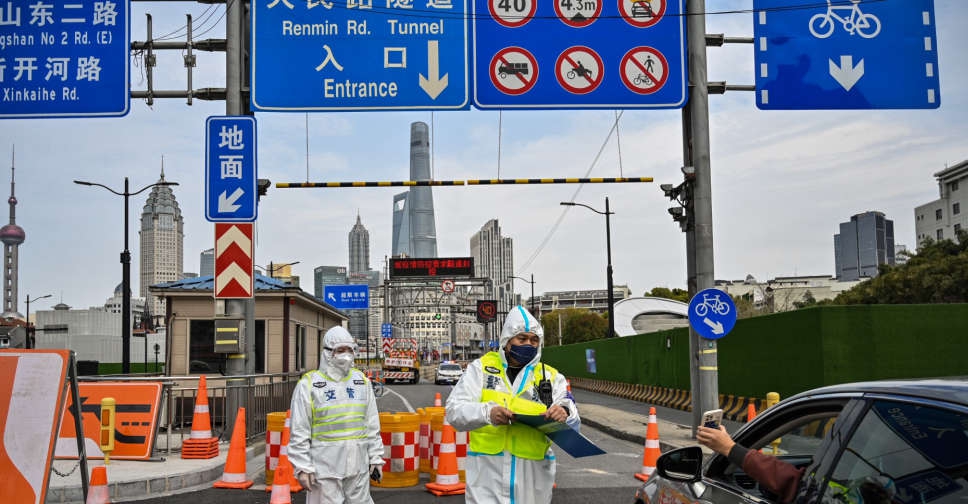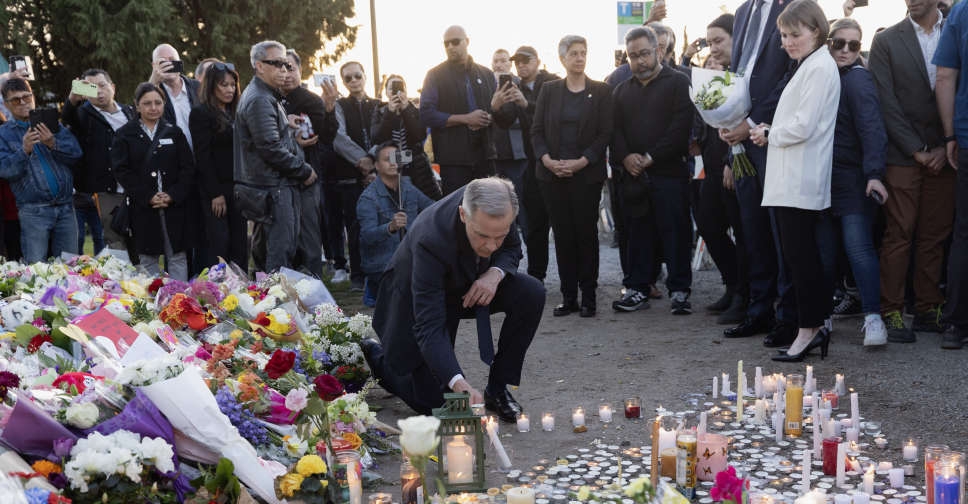
China's financial hub of Shanghai launched a two-stage lockdown of its 26 million residents on Monday, closing bridges and tunnels, and restricting highway traffic in a scramble to contain surging COVID-19 cases.
The snap lockdown, announced by Shanghai's city government on Sunday, will split the city in two roughly along the Huangpu River for nine days to allow for "staggered" testing. It is the biggest COVID-related disruption to hit the city.
While residents east of the Huangpu were confined to their homes, those in the west stockpiled groceries and other essential goods as they prepared for a similar fate starting on April 1, with delivery services overwhelmed and supermarkets running low on supplies.
The lockdown order marks a turnaround for Shanghai's authorities, which as late as Saturday denied the city would be locked down as it pursued a more piecemeal "slicing and gridding" approach to try to rein in infections.
Wu Fan, a member of Shanghai's expert COVID team, said recent mass testing had found "large scale" infections throughout the city, triggering the stronger response.
"Containing the large scale outbreak in our city is very important because once infected people are put under control, we have blocked transmission," she told a briefing, adding that testing would be carried out until all risks were eliminated.
Shanghai said earlier this month that its daily testing capacity was around 3 million, but Chen Erzhen, a doctor in charge of a city quarantine facility, warned it still might not be enough to outpace the rapid spread of the virus.
"When case numbers reach a certain level, the difficulty of relying upon previous staff deployments increases by a large degree," he told government newspaper Liberation Daily, adding that the new lockdown should at least ensure the "stillness" required to bring the outbreak under control.
Though still low by global standards, Shanghai recorded a record 3,450 asymptomatic COVID cases on Sunday, accounting for nearly 70 per cent of the nationwide total, along with 50 symptomatic cases.
Nationwide, there were 5,134 new asymptomatic and 1,219 symptomatic cases on Sunday,the health authority said in its regular bulletin.
DISRUPTIONS
As a major engine of China's economy, Shanghai has been trying to heed President Xi Jinping's call to minimise the impact of COVID controls on businesses and people's lives.
Wu told a briefing on Saturday that Shanghai could not be locked down for long because of the important role it played in the national and even global economy.
But following Sunday's about-turn, mass testing has disrupted transport, healthcare and a wide range of economic activities, with citywide land sales also halted on Monday.
Shanghai's Public Security Bureau said it was closing cross-river bridges and tunnels, and highway tollbooths concentrated in the city's east until April 1.
The bureau said traffic controls would be implemented on highways into and out of the city, and people leaving would have to show a negative nucleic acid test taken within the previous 48 hours.
Shanghai also said on Sunday it would suspend public transport, including ride-hailing services, in locked down areas. It also ordered the suspension of work at firms and factories, exempting those offering public services or supplying food. Some hospitals also suspended services as they release staff and other resources to assist with mass testing.
US automaker Tesla is suspending production at its factory, located in a district impacted by the first stage of the lockdown, for four days, two people familiar with the matter told Reuters.
Tesla did not immediately respond to a request for comment.





 Vancouver man charged with murder for attack on Filipino festival
Vancouver man charged with murder for attack on Filipino festival
 Israel's Gaza aid blockade contested in World Court hearings
Israel's Gaza aid blockade contested in World Court hearings
 Philippines raises alert level at restive volcano after eruption
Philippines raises alert level at restive volcano after eruption
 Qatari PM: Ceasefire talks on Gaza show signs of progress
Qatari PM: Ceasefire talks on Gaza show signs of progress


